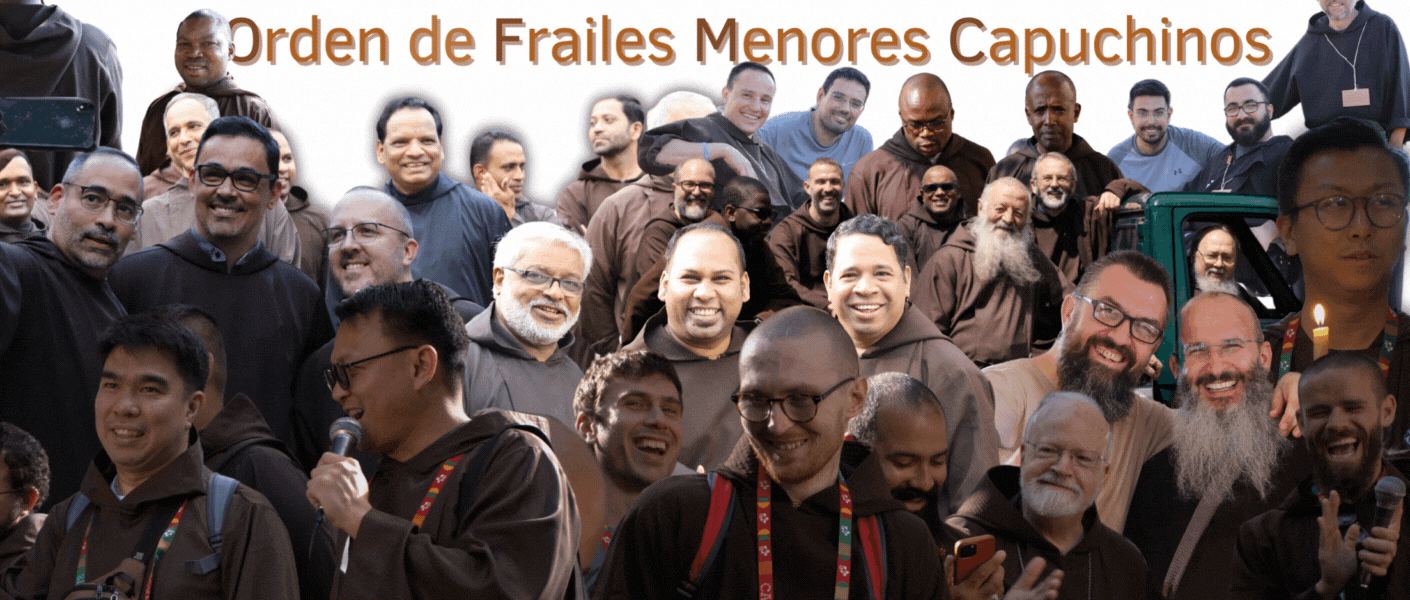Prepare the Way of the Lord - Advent, 2023
by Br. Patrick McSherry, OFMCap
Preface
Listening to homilies and reading books on spiritual life, I have often been struck by the monastic or clerical interpretations of scripture that underpin the reflections. Taken at face worth and without re-interpretation, those notions may be appropriate for monastics and clerics [I’ll leave that to their judgment], but they offer little to lay people and non-monastics. The story of Martha and Mary, for instance, has been superimposed with notions of “contemplative vs. active” lifestyles – a notion foreign to the historical Jesus and to the scriptural text. Similarly, Advent has been overshadowed by a certain “passivity” that marks cloistered life, but is not particularly suited to life “in the world.” To be sure, the interior journey is essential to human and spiritual growth, but our linking it to the Advent season may lessen the Christian’s potential impact on making a difference in the world. I offer an alternate consideration based on scriptural texts commonly used during Advent. Luke tells us (1,76-77): You will go before the Lord to prepare paths, to give his people awareness of salvation.
Second Sunday of the Advent Reflection
There is a progression in today’s readings:
• “As we await new heavens and a new earth” [2 Pt 3,8-14],
• “Let us make clear the way of the Lord” [Is 40,1-5-9-11 and Mk 1,1-8], and
• Psalm 85 indicates how we do that: by being servants of justice, truth, and peace.
Especially during the seasons of Advent and Lent — to paraphrase Bell Hooks — I am often struck by the dangerous narcissism fostered by a certain privatized, cloistered spirituality, that focuses almost exclusively on individual self-improvement and so little on the practice of love within the context of community.
Impelled by the conviction that Christmas is “Love-made-visible,” I believe that Advent is not so much about preparing ourselves inwardly to receive Christ.
Repeatedly the gospels tell us that Jesus was a Galilean. That’s not just a geographical description. The Galileans were notorious for being rabble-rousers with a mind to shake up and change society. In our religious zeal, too often we have exchanged Jesus the Galilean and tamed him into the image of Jesus the monk.
In Advent, we are repeatedly told that mountains need to be leveled, valleys need to be raised, and treacherous roads need to be straightened. The message, it seems to me, is that we are not in the home improvement business, that is, each of us renovating our own space, but we are a construction crew for the world. We live in a world where love is largely invisible. People are fed a constant diet of negativity and suspicion, so much so that they become desensitized to recognizing true love. We are called to make our world capable of recognizing God who is Love-being-made-visible by making love visible in ourselves, by making love recognizable in our actions so that people can recognize the love of God when they experience it.
In Advent, we seek miracles … light in the darkest hours of the night [Is 60,2], hope amid profound sadness if not depression, and joy amid so much hurt and heartbreak. So often we fail to hear the message of the prophet which is addressed to us, not to God. We look to the day of the Lord when he will come and intervene, but we fail to hear the message spoken directly to us by the prophet: you prepare the way; you fill in the potholes: you transform the rough road and make it smooth. And then the Lord will come.
We hear what John the Baptist and Mary did to prepare the way of the Lord, but then we quickly turn our gaze toward the nativity crib, and we feel satisfied that Scripture has been fulfilled in Mary, John, and Jesus. Instead of becoming a visible manifestation of love, we often settle for pointing people to a beautiful, but fake, crib full of plastic figures.
As Jim Palmer said: “Telling people that God loves them is good theology, but showing people that you love them is what transforms the world.” Sometimes miracles are just good people with kind hearts that God has sent into the world.
High mountains remain that still need to be leveled before the glorious coming of the Lord — injustice, prejudice, ignorance, and animosity between peoples. Faith can indeed remove mountains, but don’t be surprised if God hands you a shovel.
(Thanks to Fra. Patrick McSherry OFMCap for this inspiring article and to liltigers.net for the lovely image)




